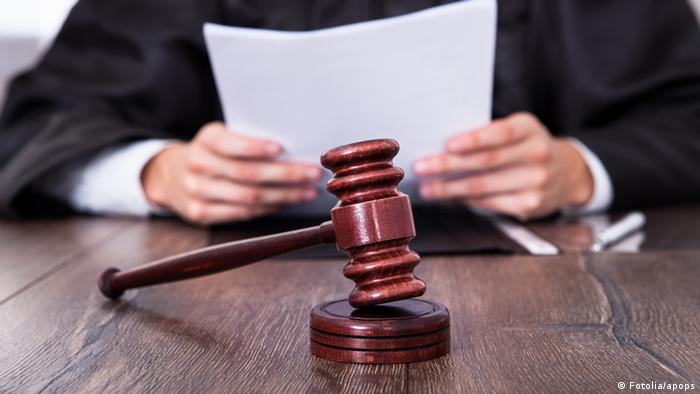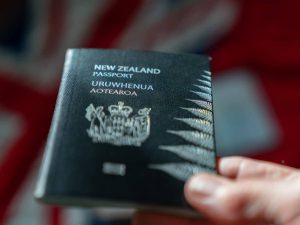The word conservatorship has been used a lot recently in the news. Just the other day I caught my kids arguing about this legal jargon. Of course, they didn’t know it was a legal terminology. My son told his elder sister that he wanted to conserve his energy, so there was no making the bed this evening. Thus, he was a conservator. In elder sister’s opinion, he was just being lazy and conservator was not an English word. LOL. Kids huh?!

Recently, celebrities the world over have been coming out with different tales that speaks of the dark side to conservatorship, first the Britney Spears saga now Amanda Bryne. Why do people get into conservatorship and when in, what makes them seek to opt out so bad? In Britney Spear’s case, going as far as taking her father to court to wrestle back control of her personal life as well as her finances.
What Does Conservatorship Mean?
Different countries have different types of court that authorizes a conservatorship. Broadly speaking though, a conservatorship is a legal procedure in which a judge appoints a person to assume legal responsibility over someone, usually a close relative, who lacks the ability to manage their personal and financial affairs.
In the United States, the Judicial Council of California’s Handbook for Conservators sets the guidelines these affairs. People under conservatorship, known as conservatees, are often elderly. But they can also be younger people beset by emotional disturbances, mental disorders or physical impairments.
Conservators are also known as guardians and they come in two types. A person’s conservator gets permission to manage a conservatee’s day to day affairs. Such as providing meals, clothing, housekeeping, transportation and recreation and other everyday needs. Sometimes the court may also appoint a conservator of the estate who oversees the finances, pays the bills and protects assets.
Guardianship is the fastest legal arrangement for the maintenance of an individual incapable of looking after themselves. Such care is enshrined in the legal regulatory framework. The purpose of this is to make sure that conservatees don’t get exploited due to their unstable mental state.

How The Laws Of Conservatorship Applies In other Countries
In The United States
For conservatorship to be granted over a person, irrefutable prove must be gotten to show that the individual in question is unable to make decisions for themselves due to physical difficulties or some form of mental instability.
In California the legal test for a conservatorship is pretty difficult. The ability of an individual to make basic decisions regarding choice of food to eat, clothing to wear, shelter to stay or medical decisions must be shown to be impaired. As regards to finances, the person being guarded must be shown to be unable to manage financial affairs or resist undue influence (having his\her decisions persuaded by others). The bar for conservatorship is really high as they are considered one of the harshest remedies in the US legal system.

Total control over Britney Spears’ estate has been enforced by her father, James Spears through a conservatorship created in Los Angeles courts in 2008, when her personal struggles made its way to the public view, according to the Associated Press. Although, she hasn’t denied that the conservatorship was necessary at the time. However recently, a petition was filed to shift control away from her father.
It is assumed that conservatees may be too frail, sick or troubled to care for themselves, but unless a judge says otherwise, they still retain rights to make certain decisions, according to the California handbook. They can control salaries they earn, spend an allowance, retain legal representation, vote in elections, get married, draft their own wills, make medical decisions for themselves and ask a judge to terminate conservatorships or replace their guardians. Even though under a conservatorship, conservatees still have rights.

It’s important to note that “All conservatees have the right to be treated with understanding and respect and to have their wishes considered. They have all basic human rights, as well, and the right to be well cared for by you,” the California handbook says.
Contrary to popular opinion, the conservator of the estate is subject to both rigorous reporting and accounting requirements. Periodic activities must be filed and reports by the first year after their appointment and every two years subsequently, until the relationship is terminated. Asset values, gains and losses have to be disclosed by estate managers, also receipts for all expenditures of conservatorship funds must be provided. Estate conservators are also prohibited from borrowing money from the conservatee or lending out their cash.

It is the legal right for a conservatee to request more judicial supervision. Complaints can be lodged at any time by the conservatee, particularly if they are not satisfied with the services of their conservator. When this complaint is made, the probate court can dispatch a court investigator to check in on the conservatorship and verify that the person is in good hands.
The investigator is supposed to pay visits to the conservatee at least every two years and can ask the judge to provide the person with legal representation if conservators are failing to fulfill their responsibilities.
In Canada
Canada has 13 jurisdictions; out of which 12 jurisdictions are common law and one following a Civil Code. Each jurisdiction that makes up the 13, has an array of statutes and/or statutory provisions governing adult guardianship, adult protection, adult substitute decision-making, adult supported decision-making, public guardian and trusteeship, and trusts. In addition, Federal legislation provides for various forms of “pension trusteeship.” The superior legislation is the Canadian Charter of Rights and Freedoms.

In Canada, conservator is known as guardianship. And it’s of 3 types; guardianship of the person, guardianship of the estate (property), guardianship of both the person and property. The terminology for guardianship varies by jurisdiction. Generally, guardianship is only to be used as an absolute last resort.
There are no “personal appointments”. So potential guardians cannot be self-mandated to take up this responsibility. Adults who want to plan for the prospect of incapacity will use either an enduring power of attorney or a personal directive of some kind; usually both. Guardians of the person/property are appointed by the superior court of a province or territory (names vary). This is constitutionally determined and was confirmed in the Supreme Court of Canada decision in Re Eve.

Eligibility criteria for guardianship varies by jurisdiction. However, in general, there must be some kind of mental incapacity combined with both a need for guardianship and a perceived benefit to the adult. Importantly, the statutory criteria (and the courts) are increasingly swinging towards ensuring that alternatives to guardianship are considered and attempted before an application is made/a guardian is appointed. The duration of which varies, but is determined by the court or the governing legislation or by the needs of the adult
Opportunities for review also varies. Although, like in the U.S, this is possible. In more progressive jurisdictions the person under guardianship can seek review. In most jurisdictions a review can be sought by someone acting on behalf of the affected adult.

Family, friends, circle of friends, public guardian and trustee can all be appointed to oversee in one or both guardianship capacities. Financial institution in the case of guardianship of property. Private sector (i.e., for profit) guardianship is prohibited.
In England And Wales
Under English and Welsh law such use of court-appointed power is not possible, due to strict legal limitations.
The equivalence of a conservatorship in England and Wales is called a deputyship. An application for a deputyship is tendered in a Court of Protection on behalf of somebody who ‘lacks mental capacity’ meaning they are unable to make decisions for themselves, for instance showing an inability to manage their property and finances or exhibiting signs synonymous with those suffering from a brain injury, illness or disability. Of course, these disorders could be temporary or permanent, the extent and effects of which will vary from person to person.

Just like in the U.S, there are two types of deputy in the UK, this is for personal welfare (which entails making decisions about an individual’s physical as well as medical treatment and care) and property and financial affairs. The Court of Protection would more than likely grant the powers to a suitable professional with experience to handle the individual’s affairs. This does not necessarily have to be a relative of the conservatee.
The rules relating to Deputies in England and Wales are laid out in the Mental Capacity Act 2005 and provide principles that Deputies must adhere to in order to make sure that the individuals basic rights and freedoms are not restricted, and a high standard of care must always be applied when making decisions. This allows for proper safeguarding to be put in place, so that situations such as Britney’s may not arise.

Just like with U.S conservators, a Deputy must provide an annual report, in England and Wales this is to the Office of the Public Guardian explaining decisions taken in relation to administration of your duties. However, unlike a conservatorship, any expenses exceeding £500 must be explained. In comparison Britney’s conservators have been able to take a percentage of her income, which would not be considered as being in the best interests of the individual under UK jurisdiction.
On the other hand, an individual in England and Wales is able to register their own Lasting Powers of Attorney (LPA) and appoint their own attorney(s) to make decisions on their behalf allowing them to get their affairs in order in advance of the possibility that they may ‘lack mental capacity’ in the future. In order to do this an individual can fill in an LPA form for health and welfare and also an LPA form for property and finances. Both documents are completely separate and must be filed at the Office of the Public Guardian.

People are able to appoint attorney(s) to make decisions relating to health and welfare or property and finances, the decisions their attorney(s) make include where they live, medical treatment they receive, paying their bills and investing their money.
In relation to the health and welfare LPA, unless the individual lacks mental capacity, the attorney(s) cannot act on the individual’s behalf until this has been proven. However, this differs for property and finances LPA, as an individual can choose for their attorney(s) to act on their behalf as soon as the application is registered or once the individual lacks capacity.
If the individual chooses to grant their attorney(s) power whilst they still have capacity, the individual will always have the final say as to what the attorney(s) does. Nevertheless, it is always important that an individual chooses attorney(s) who know them well and will be able to make the best decisions on their behalf.

It’s worth noting that Conservatorships sometimes last until the death of the conservatee. Although, a judge from the right jurisdiction court has the final say and can terminate the arrangement if the conservatee shows enough mental and physical improvement. If a conservator dies, resigns or is replaced, a court then appoints a “successor conservator” if one is still needed.











